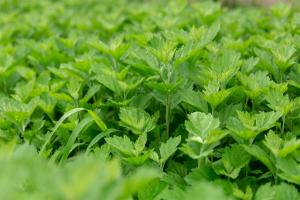Is Tap Water Killing My Plants?
As a responsible plant owner, you may have already asked yourself the question—“Is tap water safe to use for my plants?” With water being a crucial element for plant growth, it is essential to ensure that the water you’re providing to your plants is free of any harmful chemicals or additives that could potentially harm them.
The Chemicals You Should Be Aware Of
Municipal water treatment facilities use various chemicals to disinfect tap water from harmful bacteria, viruses, and other pathogens. Some of these chemicals include chlorine, chloramines, and fluoride. Chlorine and chloramines are highly effective at keeping the water safe to drink, but they may harm your plants in the long run. Meanwhile, fluoride, despite being hailed for its anti-cavity properties, can have toxic effects on plants when too much of it is present in the water.
The Effect of Chlorine and Chloramines on Plants
Chlorine and chloramines are commonly used to disinfect tap water because of their ability to eliminate harmful pathogens. However, these chemicals can have a negative impact on plants if used in excess. Both chlorine and chloramines are highly reactive and can kill off beneficial microorganisms in the soil that are important for the plant's survival. These chemicals can also damage the plant's leaves, causing them to eventually wilt and die.
The Effect of Fluoride on Plants
Fluoride is a chemical that is known for its anti-cavity properties. While it is touted for its benefits on human dental health, excessive amounts of fluoride can have toxic effects on plants. Fluoride can accumulate in soil over time and cause damage to the plant's roots, leading to slower growth and eventual death. Some common signs of fluoride toxicity in plants are browning or yellowing of the leaves and stunted growth.
The Solution to Tap Water’s Negative Effects on Plants
If you’re worried about the negative effects of tap water on your plants, there are several things you can do to ensure that your plant is happy and healthy. One solution is to let the tap water sit out for at least 24 hours before using it to water your plants. This allows the chlorine and chloramines to evaporate naturally, reducing their harmful effects on your plants.
Another option is to use a water filtration system. Water filtration systems can remove most of the harmful chemicals in tap water, leaving it safe for plants to consume. You can also consider using rainwater or distilled water, which do not contain any harmful chemicals, as an alternative to tap water.
The Bottom Line
Tap water can have negative effects on your plants if it contains harmful chemicals. To ensure that your plants are healthy and vibrant, it is essential to take proactive measures to ensure that the water you are providing to them is free of any harmful additives or chemicals. If you're unsure about using tap water for your plants, consider using one of the solutions mentioned above to provide your plants with the water they need to thrive.

 how many times do yo...
how many times do yo... how many planted tre...
how many planted tre... how many pine trees ...
how many pine trees ... how many pecan trees...
how many pecan trees... how many plants comp...
how many plants comp... how many plants can ...
how many plants can ... how many plants and ...
how many plants and ... how many pepper plan...
how many pepper plan...































